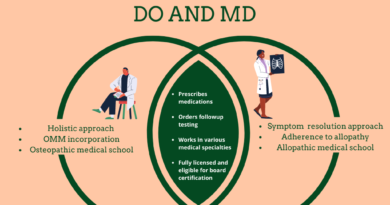Common Difficulties to Deal with in BMAT Preparation
For prospective medical and veterinary students in the UK and abroad, the BioMedical Admissions Test (BMAT) is a demanding exam that acts as a critical gatekeeper.
It was created by the University of Cambridge to evaluate not only your proficiency in science and mathematics but also your capacity for critical thought and problem-solving.
Success in the BMAT is a key step toward a career in medicine or veterinary medicine. This voyage is not without its difficulties, though.
The Complexity of BMAT
Multifaceted Nature of BMAT
One of the initial difficulties that many BMAT candidates encounter is the multifaceted nature of the examination.
The BMAT consists of three distinct sections: the Scientific Knowledge and Applications (Section 1), the Critical Thinking (Section 2), and the Writing Task (Section 3).
Each section presents its own unique challenges, requiring a diverse skill set.
- Section 1 evaluates your knowledge of biology, chemistry, physics, and mathematics at the GCSE level.
Candidates often struggle to balance the depth and breadth of their preparation, especially if they come from backgrounds where one or more of these subjects are weaker. - Section 2 demands strong critical thinking and problem-solving skills.
It presents complex scenarios and asks candidates to analyze, interpret, and draw conclusions from them within a tight time frame. - Section 3 assesses your ability to communicate effectively in writing.
This includes not only the content of your essay but also your organization, coherence, and linguistic proficiency.
Time Management
The Race Against the Clock
The BMAT preparation process is constantly difficult to manage time.
To do well on the exam, you must successfully manage the time restrictions that apply to each section.
- In Section 1, candidates have only 60 minutes to answer 30 multiple-choice questions.
This works out to just two minutes on average per question.
Time constraints might result from the tendency to mull over challenging issues. - Section 2 gives you 90 minutes to answer 32 questions.
Although this might appear more liberal, the questions might be challenging, so managing your time well becomes crucial. - Section 3 allocates 30 minutes for writing a single essay. It might be challenging to write an essay that is both well-organized and coherent in such a short amount of time.
Overcoming Time Management Challenges
It’s essential to practice with time constraints in order to overcome these time management challenges.
Regularly taking full-length practice exams can assist you in adjusting to the exam’s speed and honing your ability to divide your time between portions wisely.

Furthermore, creating methods for efficiently identifying and answering simpler queries might free up valuable time for more difficult ones.
Content Mastery
The Depth vs. Breadth Problem
The first section of the BMAT tests your understanding of science.
However, depth and breadth are equally as important as having a cursory familiarity of diverse subjects. For many candidates, this presents a problem.
- Depth: Some applicants could excel in a few areas while having trouble with others.
In areas where your knowledge is less solid, the exam may present you with unexpected questions. - Breadth: On the other hand, trying to cover every topic that may be covered can be exhausting and could result in a lack of depth in any one area.
Strategies for Content Mastery
It is advised to begin by thoroughly reviewing the BMAT syllabus in order to handle this difficulty. Prioritize your studies based on your talents and shortcomings.
Consider enlisting the help of other resources or advice for areas where you lack depth. Don’t forget the value of frequent revision to solidify your understanding either.
Related Article: Which UK Medical Schools Require BMAT (Biomedical Admissions Test)?
Critical Thinking Skills
The Need for Analytical Prowess
Section 2 of the BMAT emphasizes analytical reasoning and problem-solving skills.
It asks you to assess a variety of scenarios that are frequently based on actual scientific or medical situations in order to draw conclusions.
- Complex Scenarios: Many candidates find it challenging to go through intricate scenarios, especially when there’s a limited time frame.
- Logical Reasoning: Developing the ability to think critically and reason logically is not something that can be achieved overnight.
Honing Critical Thinking Skills
Regular practice is essential for success in Section 2. Take part in a range of puzzles, dilemmas, and activities that require critical thinking.
Become familiar with various logical argumentation and reasoning frameworks.
Moreover, think about looking for BMAT-specific materials and instruction that focuses on the abilities needed for this segment.
Examining sample responses and prior tests can also yield insightful information.
Essay Writing
Articulating Your Thoughts Effectively
Section 3 of the BMAT challenges your writing skills. You must create a clear and compelling essay on the assigned subject.
For a number of reasons, this work may seem overwhelming:
- Time Constraints: As mentioned earlier, you have only 30 minutes to plan, write, and revise your essay.
- Communication Skills: Effectively communicating your thoughts, arguments, and evidence within this time frame requires practice and skill.
- Essay Structure: Structuring your essay in a logical and coherent manner is essential for conveying your ideas convincingly.
Enhancing Your Essay Writing Abilities
To begin overcoming these obstacles, familiarize yourself with typical essay styles and frameworks.
Write essays on a range of subjects to hone your ability to express ideas succinctly and convincingly under time pressure.

To improve your writing style, ask mentors, classmates, or professors for their opinions. Besides, read a lot to expand your vocabulary and understanding of various writing styles.
Stress Management
The Psychological Aspect
In addition to scholastic difficulties, BMAT preparation frequently causes psychological stress.
Pressure might build up due to the importance of the test and the rivalry for a small number of slots in medical and veterinary schools.
- Test Anxiety: Many candidates experience test anxiety, which can negatively impact their performance on the day of the exam.
- Time Pressure: The time constraints in each section can add to stress, making it difficult to think clearly.
Coping with Stress
For the best results, stress management is crucial. Create a well-organized study schedule that includes breaks and downtime.
Anxiety may be reduced through methods like deep breathing, mindfulness, and meditation. Maintaining a healthy lifestyle with frequent exercise, a balanced diet, and enough sleep is also essential.
Also, if you’re having trouble with stress and worry, think about getting help from peers or experts.
Resource Selection
The Sea of Study Materials
It might be difficult to select the best BMAT preparation tools. The alternatives for textbooks, online courses, practice exams, and coaching are many.
Finding products that fit your requirements and learning style is the difficult part.
- Quality vs. Quantity: Having too many resources can lead to confusion, while relying on inadequate materials can hinder your preparation.
- Budget Constraints: Some students may have budget constraints, limiting their choices among paid resources.
Effective Resource Selection
Start by looking for and reading reviews of various BMAT preparation resources in order to overcome this problem.
Decide which resources will best address your unique needs and shortcomings. Instead of being influenced by marketing tactics, pay attention to the resource’s reputation and content quality.
If money is tight, look into free or inexpensive resources like official BMAT practice questions, which are frequently offered online for nothing or at a very cheap price.
Joining online forums or communities where candidates discuss their experiences and provide study aids is another option.
Maintaining Motivation
The Long Process
The BMAT preparation process is a marathon rather than a sprint. Even for those who begin their planning far in advance, the procedure might take a while.
It might be difficult to stay motivated for a lengthy period of time.
- Plateaus: You might encounter periods where you feel your progress has stalled, leading to frustration and demotivation.
- Competitive Pressure: Knowing that you’re competing against highly motivated and capable candidates can be intimidating.
Sustaining Motivation
Set attainable goals and benchmarks for yourself to reach in your BMAT training to stay motivated. Divide up your study strategy into doable tasks, and acknowledge your successes as you go.
Find a study strategy that works for your learning preferences and style. Create a network of friends, family, or study partners around you who will be there for you when things become tough.
Keep your eyes on your ultimate objective of pursuing a profession in medicine or veterinary medicine and keep in mind the long-term benefits of your work.
Test Day Anxiety
The Final Hurdle
Even with substantial study, test day anxiety can be a major obstacle. Your performance on the real test may be impacted by anxiety, self-doubt, and failure dread.
- Pressure to Perform: The weight of months of preparation and the desire to secure a place in a prestigious program can create immense pressure.
- Unknown Environment: Being in an unfamiliar test center with strict rules and time constraints can be intimidating.
Overcoming Test Day Anxiety
It’s crucial to have a game plan if you want to reduce test day anxiety. Learn in advance where the exam facility is and what the rules are.
Make sure you have all the required paperwork, including identification, an entry ticket, and writing supplies.
Find relaxation methods that are effective for you, such as deep breathing exercises or constructive imagery.
Last but not least, keep in mind that anxiety is common among applicants. To stay awake and concentrated during the exam, utilize it as a source of energy.
Peer and Family Expectations
External Pressure
BMAT preparation often takes place within a broader social context.
Family members, friends, and peers may have high expectations and place pressure on you to perform well.
- High Stakes: The competitiveness of the exam and the limited spots available in medical and veterinary programs can intensify external expectations.
- Well-Meaning Advice: While family and friends may have your best interests at heart, their well-meaning advice and opinions can add to the stress.
Managing External Expectations
It’s essential to be open and honest with your loved ones about your objectives, difficulties, and the value of their support.
Let them know that while you appreciate their encouragement, exerting further pressure might not be beneficial.
Consider your personal goals and reasons for wanting to work in medicine or veterinary medicine.
In the end, it’s your path, therefore you should make decisions that fit your goals and skills.
Wrapping Up
Undoubtedly difficult, the BMAT preparation process is riddled with logistical, psychological, and academic challenges.
These challenges, nevertheless, are not insurmountable. You may overcome these obstacles and raise your chances of success with tenacity, practical solutions, and a well-organized study schedule.
Keep in mind that BMAT preparation is about more than simply passing the test; it’s also about gaining the abilities and information required for a future job in veterinary medicine or medicine.
Accept the process, maintain your fortitude, and focus on the end result of improving the healthcare industry.





Самые свежие новинки моды.
Важные мероприятия всемирных подуимов.
Модные дома, бренды, haute couture.
Интересное место для модных людей.
https://qrmoda.ru/fashion/361-manzoni-24-italyanskiy-mehovoy-shik/
Точно важные события мировых подиумов.
Абсолютно все эвенты самых влиятельных подуимов.
Модные дома, лейблы, haute couture.
Интересное место для трендовых людей.
https://stylecross.ru/read/2024-06-19-lacoste-kachestvennyy-premium-po-tsene-mass-marketa/
Несомненно актуальные события модного мира.
Актуальные мероприятия мировых подуимов.
Модные дома, лейблы, высокая мода.
Самое лучшее место для модных хайпбистов.
https://world.lepodium.net/
Наиболее важные события индустрии.
Абсолютно все события всемирных подуимов.
Модные дома, торговые марки, высокая мода.
Новое место для модных людей.
https://rftimes.ru/news/2024-08-14-7-samyh-kultovyh-veshchey-ot-balenciaga
Точно свежие события модного мира.
Актуальные новости лучших подуимов.
Модные дома, бренды, haute couture.
Самое приятное место для стильныех хайпбистов.
https://hypebeasts.ru/stuff/2024-08-18-demna-gvasaliya-ikona-sovremennoy-mody/
Наиболее трендовые события мировых подиумов.
Все новости всемирных подуимов.
Модные дома, бренды, haute couture.
Интересное место для трендовых хайпбистов.
https://sport.mskfirst.ru/msk/2024-05-08-komanda-spartak-oderzhivaet-pobedu-v-matche-zenit-25
Стильные заметки по созданию крутых видов на любой день.
Заметки стилистов, новости, все коллекции и шоу.
https://vladtoday.ru/news/2024-09-10-10-prichin-za-chto-my-lyubim-demnu-gvasaliyu/
Модные советы по созданию стильных луков на любой день.
Статьи профессионалов, новости, все новые коллекции и мероприятия.
https://omskdaily.ru/news/2024-09-20-10-samyh-vliyatelnyh-dizaynerov-2024-goda-trendsettery-kotorye-izmenyayut-modu/
Стильные заметки по подбору крутых луков на каждый день.
Мнения профессионалов, новости, все дропы и мероприятия.
https://metamoda.ru/moda/849-brend-raymond-weil-predstavlyaet-kollektsiyu-millesime/
Patek Philippe is a prestigious Swiss watchmaker celebrated for its exquisite watchmaking. Established in 1839, the brand has upheld a legacy of excellence. Horology aficionados cherish Patek Philippe because of its timeless elegance and exclusivity.
https://patek.superpodium.com
Your article helped me a lot, is there any more related content? Thanks!
Can you be more specific about the content of your article? After reading it, I still have some doubts. Hope you can help me.
В нашем магазине вы можете приобрести кроссовки New Balance 574. Эта модель характеризуется удобством и современным внешним видом. New Balance 574 станут отличным выбором для активного отдыха. Покупайте свою пару уже сегодня и насладитесь качеством легендарного бренда.
https://nb574.sneakero.ru/
Легальные букмекерские приложения позволяют скачать приложение БК и начать выигрывать прямо сейчас
1win предоставляет новым игрокам бонусные средства, которые можно использовать для ставок на спорт или в казино. Этот код вводится при регистрации, и бонусные деньги зачисляются на счет игрока.
Подробнее о промокодах 1Win можно ознакомиться в этом материале – https://badgerboats.ru/themes/middle/?1win_promokod_pri_registracii.html
Перейдите на 888Starz официальный сайт и получите фрибет
Ищете, как отправить груз по выгодной цене? Попутный груз — ваш лучший выбор
На данном ресурсе представлены оригинальные сумки популярного бренда Bottega Veneta. Здесь предлагается купить трендовые модели, которые подчеркнут ваш стиль. Вся продукция отличается высочайшим качеством, что характерно бренду Боттега Венета
https://gorillasocialwork.com/story19525693/bottega-veneta
Получите привилегии, установив 888starz apk ios
Обучение накрутке ПФ позволяет раскрыть весь потенциал сайта и привлечь больше трафика.
Премиальный интернет-магазин Боттега Венета предлагает широкий ассортимент эксклюзивных товаров от легендарного бренда. В нашем каталоге вы сможете подобрать и приобрести продукцию из новых коллекций с удобной доставкой по всей стране.
Интернет-магазин Bottega Veneta
Если вам нужно перевезти груз Новосибирск Краснозёрское, попутная доставка поможет сэкономить.
Thanks for sharing. I read many of your blog posts, cool, your blog is very good.
Скачайте 1xslots на айфон и получите круглосуточный доступ к слотам.
Для удобной игры в казино скачайте 1xslots бесплатно на телефон.
Перед ставками потренируйтесь с лаки джет демоверсия.
Скачайте мобильное приложение для ставок на спорт и делайте ставки прямо с телефона. Легальные БК предлагают удобные решения — скачать легальные БК
Узнайте больше о вывозе строительного мусора в Новосибирске https://xn--80almfnfiqx.xn--p1ai/071024.html
Если хотите попробовать свои силы, то игра ракетка — это ваш выбор.
Get ready for top betting action with 888Starz Bet and enjoy unique promo offers using code 888LEGAL.
Get started on 888Starz Pakistan for a world-class casino experience.
Играйте где угодно и когда угодно с мобильной версией букмекерской конторы Зенит.
Con 1xslots descargar, lleva la emocion del casino contigo a todas partes.
Can you be more specific about the content of your article? After reading it, I still have some doubts. Hope you can help me.